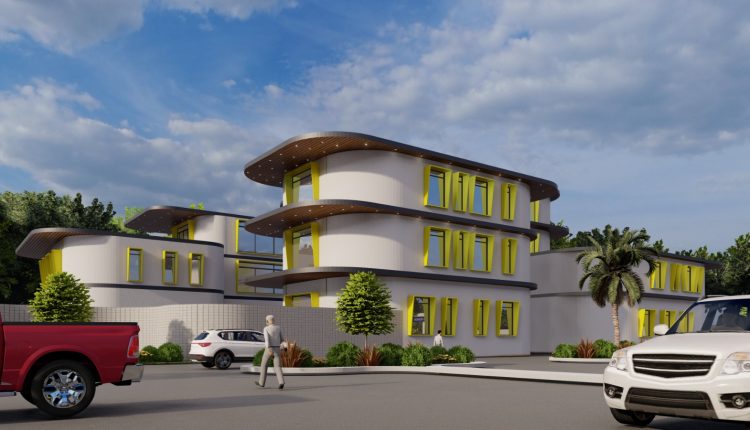Musab Umair
In times of uncertainties, chaos and ever-growing challenges, Karachi has always emerged as a sigh of hope for Pakistan with dynamism, prospects and opportunities at every step of the way. Being the financial hub of the country, the city with a population of more than 20 million people has outgrown the conventional patterns of business, as the requirement of co-working spaces has become a strategic necessity rather than a lifestyle choice. The culture of working in co-working spaces has prevailed across the world; however, its utilization and significance has been effectively understood in United Kingdom, wherein co-working office spaces are everywhere, and everyone works in a collaborative environment. If UK being a developed state is utilizing the idea of co-working spaces for its citizens, why can’t businesses in Pakistan operate under the same model? There is a dire need to create co-working spaces in Karachi, wherein an environment that fosters innovation, collaboration, growth and empowerment must be cultivated, while leading towards entrepreneurial growth.
With a population growth rate of 3.62% every year and migrants infusing from across the Pakistan seeking education, health, shelter and livelihood; the spread of the city and the availability of resources is becoming increasingly difficult for the Provincial government. Attracted by the promise of better educational and professional opportunities, hundreds of experts and students migrate to Karachi each year from rural areas. However, their transition is rarely seamless. Migrants often face challenges such as social isolation, substandard housing, limited access to networks, and a lack of affordable, comfortable workspaces. Traditional organizations and workplaces typically fail to meet these diverse and evolving needs. Multipurpose co-working spaces offer a promising solution, providing more than just shared desks, they foster inclusive environments that support social integration, entrepreneurship, and education. Although private businesses in Karachi have realized this very fact and a trend of operating from co-working spaces has started to evolve, nevertheless, this idea will hold its position and space, once it is being supported and backed by government institutions. With a 6.6% increase in the last two years, co-working spaces have the capacity to build an environment that allows small businesses, freelancers and students to thrive and prosper while sharing the resources. Research also highlights that co-working spaces reduce the operational cost by 60%, while enhances the working efficiency by 67%. These statistics may act as a stimulator for a new business venture.
Co-working spaces allow affordable and flexible ambience that encourage creativity and innovation. By uniting industry experts and students, they promote mentoring, brainstorming which can allow individuals to grow and collaborate. Especially for urban newcomers, these hubs support social integration, economic empowerment, and the transition from survival to self-sufficiency through networking, training, and digital resources. There are lots of government as well as private buildings that can be refurbished and used as co-working spaces yet will of the decision makers is required to act. Multipurpose co-working spaces should prioritize the needs by merge technology, sustainability and adaptability. Amenities like ergonomic furniture, natural lighting can enhance consolation and productivity. Portable designs can allow continuous transitions between work zones. Urban accessibility and shared resources decrease waste and carbon emissions, fostering eco-conscious partnership. Another important aspect of designing innovative co-working spaces is traverse education, innovation and entrepreneurship. Places like University Road are ideal for these as educational institutions like NED, Agha Khan and University of Karachi graduate thousands of students each year, out of which roughly half of them remain unemployed for a considerable period. Starting co-working spaces in this vicinity has the tendency to bridge academia and industry, while leading to the start of numerous new startups. Young people will have the facility to find infrastructural support during the city in lieu of finding employment or starting a new venture. Likewise, business owners will be able to find new talent, vision and skill at their doorstep. In a city, where the pace never pauses, co-working spaces guarantee that neither determination nor opportunities is left behind. By filling the gap between rural and urban living, these centers have the capability to recreate Karachi’s bright future.
An advanced architectural design predicts the creation of user-friendly, multifunctional co-working spaces in Karachi that offers collaboration, creativity and productivity among professionals and young individuals. By integrating leading-edge technology, adaptable layouts and supportable design, the idea aims to recreate outdated workplaces and meet the developing needs of a diverse, digital-driven workforce. Co-working spaces have already started converting Pakistan’s professional landscape, becoming hubs of innovation and entrepreneurship. In a city like Karachi where ambition never stops, such spaces promise to fuel economic growth, encourage collaboration, and strengthen human connections, ensuring the city’s continued rise as the nation’s financial and creative powerhouse.
Musab Umair
The author is an Interior Architecture Graduate from University of Portsmouth, England. He can be reached out at umair.arainuk@gmail.com

